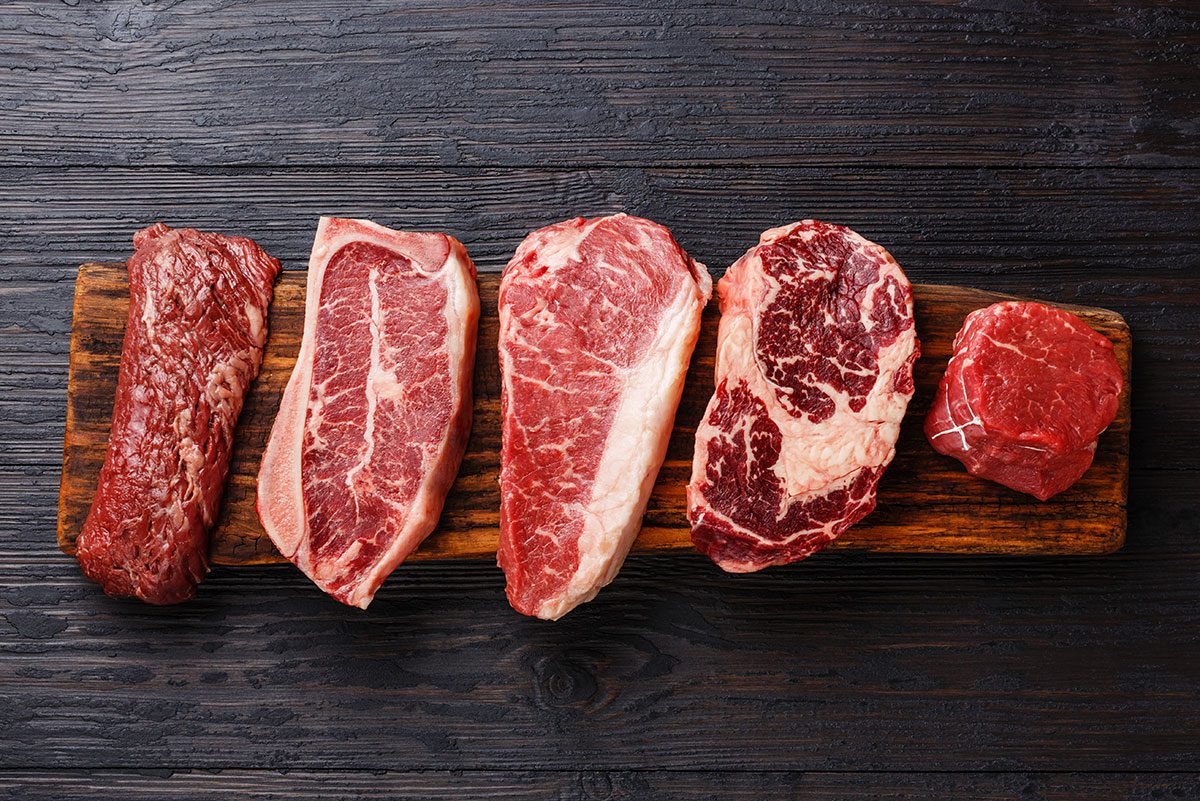What Happens to Your Body When You Eat Too Much Meat

Most Americans eat a lot of meat. In fact, according to data published by the USDA, consumers ate roughly 217 pounds of red meat and poultry per person in 2017. However, eating a diet that’s centered primarily around meat can potentially lead to health issues later down the road.
Dena Champion, RD at The Ohio State University Wexner Medical Center, explains exactly what could happen if you eat too much meat over time and offers tips on how you can reduce your overall meat consumption. And if you’re looking to eat less meat, Here’s Exactly How A Plant-Based Diet Can Protect You From Disease, According to Experts.
Is it possible to include too much meat in your diet? In other words, how much is too much?
While Champion clarifies that there isn’t a maximum amount of meat you should avoid exceeding each day, you don’t need to eat it at all. If you do choose to eat meat, the dietitian says it shouldn’t be the star of the show. Instead, your plate should mostly comprise foods derived from plant sources (think veggies and legumes): “ideally, a quarter whole grains, a quarter protein (lean meats or plant-based), and half veggies.”
“This provides high amounts of fiber, phytochemicals, and antioxidants important for good health,” says Champion.
What are some potential side effects of eating meat more than you should?
Meat is naturally satiating because it’s high in protein. However, it offers no fiber and lacks minerals, vitamins, and antioxidants. Therefore, if you eat more meat than other plant-based foods that offer those essential nutrients, you miss out on diversifying your diet.
“According to the American Institute of Cancer research, the risk of certain types of cancers increases when people eat over 12-18 ounces of red meat per week, and there is no amount of processed meat that can be recommended,” says Champion.
Instead of red meat, which is often packed in saturated fat, opt for a leaner animal protein, such as poultry.
RELATED: Your ultimate restaurant and supermarket survival guide is here!
How should one go about reducing their intake of meat?
If you find you eat meat at dinnertime on most nights of the week and are looking to cut back, Champion suggests that you start by making one dinner meatless each week. Does the sound of meatless Mondays ring a bell?
“I also think it’s helpful to start thinking about your whole plate,” says Champion. “Pile your plate with veggies, and chances are, you will want less meat. Pay attention to how you feel when you eat more fiber and nutrient-dense foods.”
She adds that many of her patients feel much better when they eat more plants than meat and animal byproducts such as eggs and cheese. Of course, one of the benefits of incorporating more vegetables into your diet is that it can help you become more regular and reduce digestive problems in general.
“Find a few meatless recipes that appeal to you and try them,” Champion says. “I love black bean tacos instead of meat tacos for example.”
Substitute ground beef for beans and mushrooms and add shelled edamame to salads for extra protein and a crunch. She also suggests integrating more whole grains such as quinoa, brown rice, and barley into your meals for additional vitamins, minerals, and protein.
“People who focus on a plant-based diet of whole foods, veggies, nuts, and seeds are generally healthier than someone who eats a meat-heavy diet,” says Champion. “This includes lower rates of cancer, obesity, heart disease, and more.”
And the next time you’re shopping—whether for meat or for vegetables—don’t miss these 30 Cheap Costco Buys That Make the Membership Worth It.








